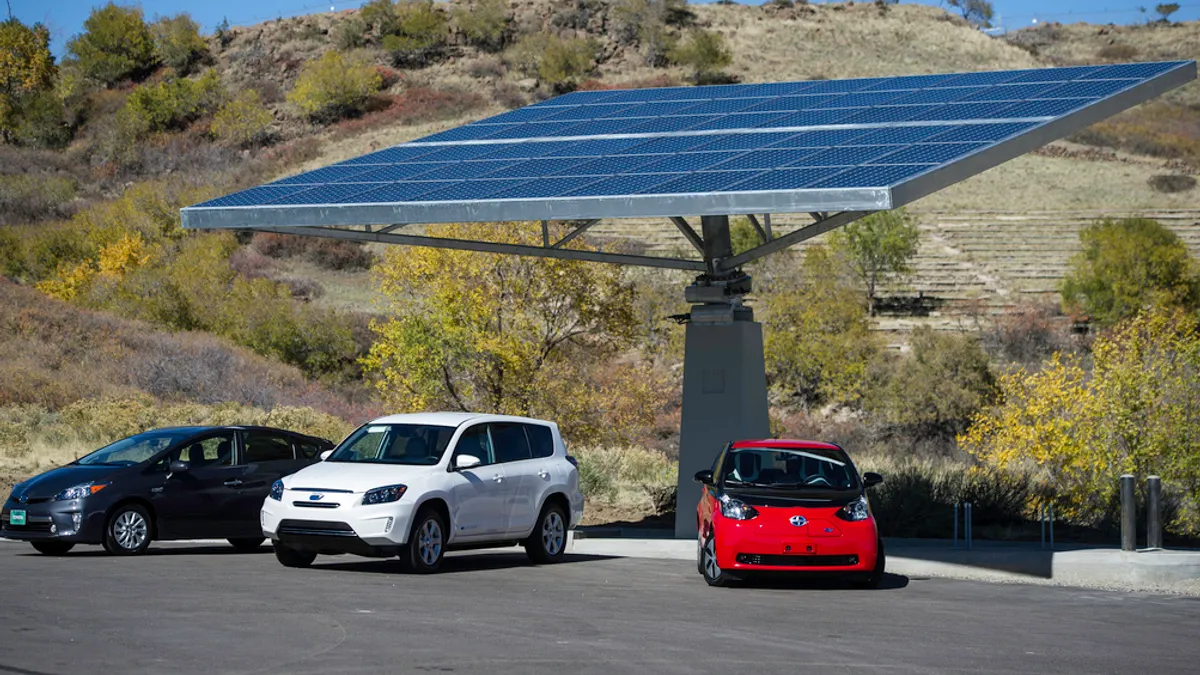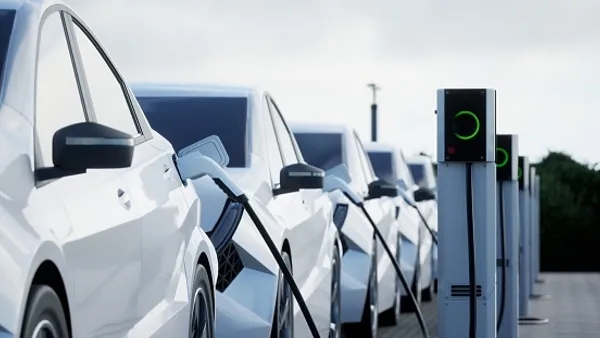Dive Brief:
- California lawmakers are considering AB 1184, a measure to expand incentives for the purchase of electric vehicles with an eye towards getting 5 million of them on the road by 2030.
- The bill was introduced by Assemblymember Phil Ting, and Greentech Media reports Advanced Energy Economy (AEE) is a co-sponsor of the bill.
- The bill could continuously fund incentives to the tune of $3 billion, and would pay for it through a "portfolio of existing funding sources." Among those is likely to be revenues from California's cap-and-trade program, according to GTM.
Dive Insight:
California has about 300,000 zero emissions vehicles on its roads — well shy of Gov. Jerry Brown's goal of reaching 1.5 million by 2025. While that milestone looks doubtful, California lawmakers are searching for ways to increase the number of EVs on the road. Increasing the tax credit for purchasing is one way the state is considering — much like it did with rooftop solar.
AEE's Steve Chadima told GTM that the state's solar initiative, passed a decade ago, was "among the most successful pieces of policy that the state has passed,” and a similar structure could work for electric vehicles.
According to the bill's author analysis, "the state must do more to accelerate its path towards transportation electrification ... For low-income households, having the ability to purchase a new vehicle, let alone a more expensive EV, is simply not an option. Fleets of affordable and refurbished EVs could be a better option for many households."
The bill establishes a California Clean Energy Vehicle Initiative, ultimately hoping to get 5 million EVs on the road by 2030.
In addition to legislation, California's investor-owned utilities working to get more electric vehicles within their service territories, and earlier this year they filed plans to grow the resource.
Southern California Edison would spend $19.45 million on six “priority review” pilots and $553.8 million on a five-year charging infrastructure buildout. San Diego Gas and Electric wants $18.19 million for six priority review pilots and $225.9 million for residential charging. And Pacific Gas and Electric has proposed $20 million for priority reviews and $233.2 million for two five-year charger buildouts.
Three IOU programs totaling $197 million have been approved by the California Public Utilities Commission, aiming to support the 2025 EV goal.














